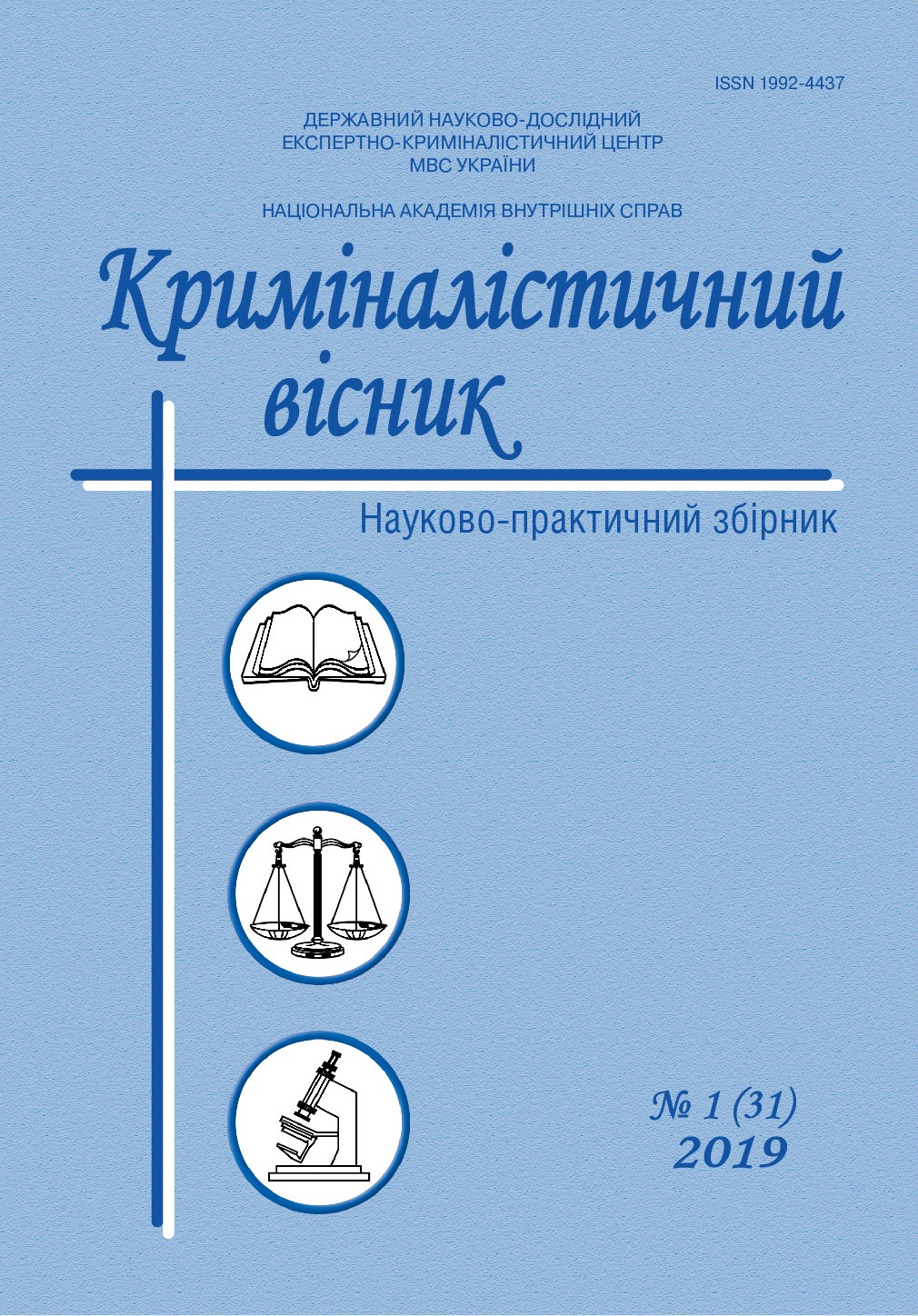PROBABILITY IN MODERN FORENSICS
DOI:
https://doi.org/10.37025/1992-4437/2019-31-1-6Keywords:
probability, identification feature, forensic authentication, complex object, random size, random process, examinationAbstract
The aim of the article is to scientifically use the probabilistic approach to the estimation of the obtained results of the examination and to justify the need for wide objects using information technologies and making expert decisions. In the course of the research it is argued that modern expert doctrine presupposes providing expert conclusions in a categorical form. It is suggested that expert findings, since any forensic identification investigation of a complex object is reduced to measuring and comparing identification traits whose magnitudes are essentially random in nature, it is advisable to present in probabilistic form, which is due to the presence of at least three components of identification research, which have
random character. Such conclusions and features of their interpretation are illustrated by examples. The methodological basis is the dialectic-materialistic method, which contributed to the understanding of the object of study in the context of meeting the needs of science and practice, methods of formal logic (analysis, synthesis, induction, deduction, analogy, abstraction), which made it possible to understand the content of the subject more detailed.
Keywords: probability; identification feature; forensic authentication; complex object; random size; random process; examination.



